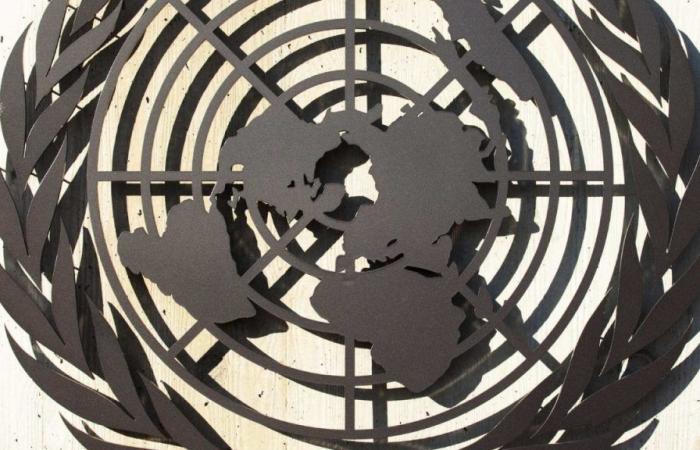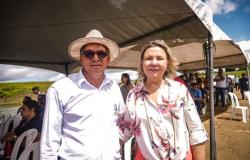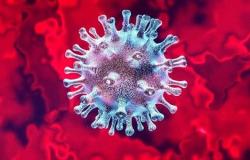Apresented in Geneva, the report by the United Nations Human Rights office, drawn up based on more than 2,300 interviews with victims and witnesses, describes “the measures taken by the Russian Federation to impose language, citizenship, laws, the judicial system and Russian educational curricula in the occupied zones, while suppressing expressions of Ukrainian culture and identity and dismantling Ukraine’s administrative and governance systems in those regions.”
Recalling that Russia “started the occupation of Ukrainian territory in Crimea in 2014”, it focuses on the situation of the territory of Ukraine that came under Russian occupation after the large-scale armed attack launched by the Russian Federation on February 24, 2022.
“From the beginning, the Russian armed forces, acting with widespread impunity, have committed widespread violations, including the arbitrary detention of civilians, often accompanied by torture and ill-treatment, in some cases amounting to enforced disappearances. Although the Russian armed forces have Initially targeting individuals considered to be a threat to security, over time the network was widened to include anyone considered to be opposing the occupation”, denounces the report.
Accusing Russian authorities of having imposed “strict controls on residents’ movements and looted homes and businesses”, the report notes that “people were encouraged to report each other, leaving them fearful of even their own friends and neighbors “, also highlighting Moscow’s efforts to restrict access to information.
“The occupation authorities closed the Internet and Ukrainian mobile networks, as well as television and radio channels, with traffic being rerouted through Russian networks, which made it possible to control the information accessible online and prevented the population from receiving freely information from independent news sources, family or friends”, highlights the UN report.
According to the data collected, “people in the occupied territories were pressured and coerced into obtaining Russian passports” and those who refused to do so “suffered more severe restrictions on their freedom of movement and were progressively deprived of employment in the public sector, as well as access to health care and social security benefits”.
The Office of the High Commissioner for Human Rights also emphasizes that “certain actions by the Russian Federation, which suppress expressions of Ukrainian identity, have had a special impact on children”, pointing out in particular the replacement of the Ukrainian curriculum by the Russian curriculum in many schools, as well as the introduction of “school textbooks with narratives that seek to justify the armed attack on Ukraine”.
The report also leaves a warning to the Ukrainian authorities not to punish, for alleged collaborationism, Ukrainian citizens in the occupied areas, something that happened when Ukrainian forces recaptured, at the end of 2022, areas such as Mykolaiv and parts of the Kharkiv and Kherson, which the UN Human Rights Office later had access to.
According to the UN, “an overly broad and imprecise provision of the Criminal Code of Ukraine has led to people being prosecuted on charges of collaboration with the occupation authorities for actions that can be legally compelled by the occupation authorities under humanitarian law international, such as working to ensure essential services”, or by collaboration “under severe duress or pressure”.
“These processes have tragically led to some people becoming victims twice – first during the Russian occupation and then again when they are tried for collaboration. This risk of potentially being tried has sown fear among those who lived, or still live, under the occupation, and reinforces divisions”, warned the UN High Commissioner for Human Rights, Volker Türk, today, urging Ukraine to “review its approach towards such processes”.
The Russian military offensive on Ukrainian territory, launched on February 24, 2022, plunged Europe into what is considered the most serious security crisis since the Second World War (1939-1945).
Ukraine’s Western allies have supplied weapons to Kiev and approved successive sanctions packages on Russia to try to reduce Moscow’s ability to finance the war.
Read Also: UN denounces “deplorable” detention conditions in Gabon
Download our free App.
Eighth consecutive year Consumer Choice for Online Press and elected product of the year 2024.
* Study by e Netsonda, Nov. and ten. 2023 product of the year – pt.com
Download our free App.
Eighth consecutive year Consumer Choice for Online Press and elected product of the year 2024.
* Study by e Netsonda, Nov. and ten. 2023 product of the year – pt.com
Tags: accuses Russia creating suffocating climate fear occupied zones
--





